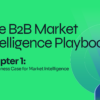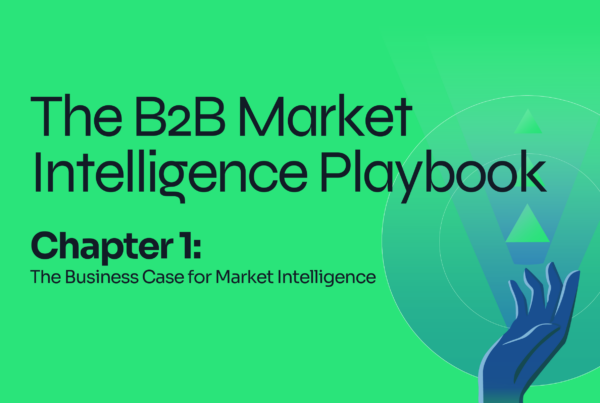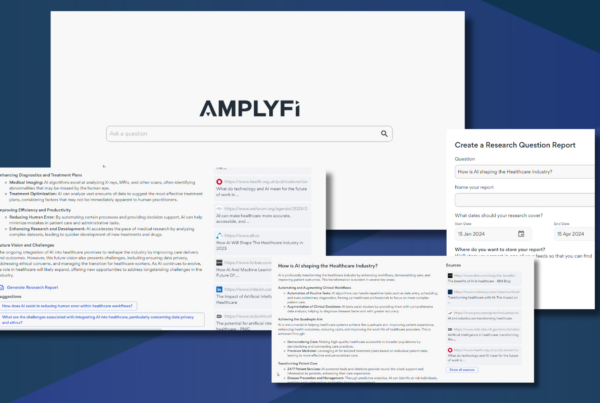
A blog for Executives, Technology and Intelligence Leaders, exploring whether generative AI answer engines are a solution to information overload for organisations.
People are overwhelmed by the amount of information they are expected to consume at work. The reality of this challenge became obvious when we surveyed 1500 knowledge workers at the end of last year, with a quarter left unable to find critical information multiple times a week.
Now we’re taking a deep dive into whether Generative AI – answers engines in particular – are the solution that organisations need to empower their teams in sourcing knowledge.
We’ve come a long way in our ability to search for information. When we were limited to single computers and mainframes, the folders we had access to were enough. However, as we moved to the internet, the likes of Yahoo then Google allowed us to find a more diverse set of information.
Now, with the datasphere standing at roughly 120 zettabytes and doubling every 18 months, organisations are drowning in information and are looking for AI-driven answer engines to meet their needs.
Where search engines were previously the knowledge worker’s best friend, answer engines are now disrupting the status quo.
But this raises a bigger question: are you comfortable outsourcing your answers to a black box AI tool that you have no control over? And what impact does that have on your decision making and strategy?
Faced with this new and different challenge, businesses need to ask themselves…
..How much can we trust answer engines?
One of the biggest issues with this type of fact-finding tool is that people are susceptible to anchor bias, a cognitive bias that causes individuals to rely heavily on the first piece of information they receive when making decisions. It can lead to flawed decision-making processes, where subsequent judgments are unduly influenced by the initial anchor, regardless of its relevance or accuracy.
When using ChatGPT for example, do you take the first answer it gives you as unequivocal fact?
Yes, answer engines take away the manual effort of searching through links, but it’s ridiculous to expect them to deliver accurate and comprehensive insights every time. Especially given that AI is prone to artificial hallucinations, whereby it presents misleading or false information as fact.
For example, a study conducted by Stanford University’s Institute for Human-Centered AI and Regulation, Evaluation, and Governance Lab found that LLMs frequently produce false legal information. In fact, the model behind ChatGPT, GPT-3.5, produced false information 69% of the time.
Similar issues have cropped up in the customer service domain, including when Air Canada’s chatbot fabricated a bereavement policy that did not exist, leading to a Canadian court ruling that Air Canada must honour the commitments made by the chatbot.
According to our research, 57% of knowledge workers also uncover contradictions in data found using different fact-finding channels, so are left feeling sceptical and unsure of what to trust. The user-friendly nature of answer engines takes away our sight of these contradictions, but they still exist.
We are at risk of becoming heavily reliant upon new, quick and easy tools, and could be lulled into a false sense of security in the information’s accuracy.
Answer engines promise broader content coverage, but their reliability hinges on the quality of the data they work with. And given that a lot of the work is done within black box AI, users might be unaware of the biases or inaccuracies in the responses.
So, if verifying the output of an answer engine like ChatGPT is more effort than conducting data analysis yourself, is it really worth it?
On top of all of this, answer engines also leave vast expanses of the internet unexplored. The deep web makes up 90% of the internet, yet is often omitted by the typical search engine. Teams are subsequently making critical business decisions based on a fraction of the data available to them.
Improving access to information the right way
Each year, the average business spends £4.4 million searching for information – that equates to 7.7 hours (or one average working day) a week for each knowledge worker.
Answer engines have a way to go, but they will arguably be the next best step to reducing the cost of poor information access. However, they cannot be viewed as a fool-proof solution and should therefore be treated with the same maturity as search engines. In the same way that Google is dictated by SEO, AI-powered answer engines like ChatGPT are prone to hallucinations.
Given that 97% of knowledge workers admit their decision-making is negatively impacted by difficulties in searching for information, teams need a more reliable version of widely used answer engines.
Platforms powered by trustworthy AI go beyond the surface-level information that dominates conventional search engine results, without the risk of artificial hallucinations and inconsistent answers that lack evidence. Unlike some engines that offer accessible but unreliable answers, this type of tool prioritises verified evidence and in-depth analysis.
Trustworthy AI also makes use of all information sources, including the dark web, opening up a wealth of previously untapped knowledge. This – combined with its ability to overcome the limitations of search and answer engines – is why platforms powered by trustworthy AI should be the tool that businesses should give to their teams.
Get our FREE report uncovering the truth of information overload in Market Intelligence, backed by 1500 interviews. Our research uncovers the truth about the limitations of existing knowledge-gathering methods, quantifies the true cost of poor processes on the business, and paves the way for a new era of information gathering:
Sign up to our newsletter, your one-stop shop on all things Market Intelligence. Get exclusive content, cutting-edge tech news, research reports and actionable insights.








